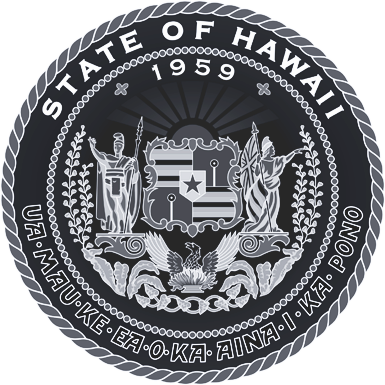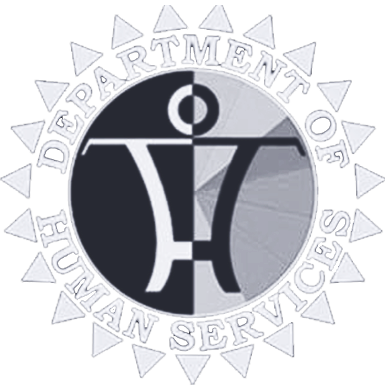Open your heart to a
child/youth in foster care
Begin your online application now.
Please click below to learn more about the licensing requirements
Hawaii Administrative Rule 17-1625
Why you should become a Resource Family
Hawaiʻi Kids need you
Through no fault of their own, there are amazing children who need short term foster care. Please help these children and families who are in crisis.
You'll be supported
Hawaiʻi provides foster board payments and various financial reimbursements to help you every step of the way.
It's Rewarding
Opening your heart to a child/youth in foster care can be an amazingly rewarding experience. You can make a difference in a child’s life.
“We all need a support group to depend on. My support group was my family, school, and friends. They created a way for me to succeed.”
Resource Families are people from every walk of life who are committed to providing stable, supportive homes for children who have been removed from their parents because of neglect or abuse. Because the Child Welfare Services Branch is a Concurrent planning agency, our primary goal is Family Reunification (returning children to their families once their safety has been re-established). There are also children in foster care who are looking for legal guardianship and adoptive families.
Resource Families can be married or single, gay or lesbian, with or without children, and from any ethnic or cultural background.
Age requirements are flexible, as long as you are healthy adult with the energy and desire to care for a child. You do not have to own your home, as long as your rental home is safe and large enough to accommodate your family. You do not have to be wealthy to be a Resource Family, but your income must be adequate to provide for the basic needs of your family.
How to Become a Resource Family in Hawaiʻi
- Complete an application online
- Submit required documents
- Complete Required Pre-Service Training
- Participate in home study
- Final approval completed by the Child Welfare Services Licensing Worker at time of walk through
DHS makes the final determination to approve (or deny) the resource caregivers licensing application. Information provided through background clearances, home study assessment, collateral contacts, employment, and other sources of reliable/verifiable information are all used in the final decision made by DHS.
FAQ
What is the difference between a foster parent and a resource caregiver?
Traditionally, “foster parent” is the term used for people who provide foster care/temporary care to children in foster care. Hawaiʻi has adopted the term “resource caregiver” as Child Welfare Services works to develop/strengthen the relationship between our parents and resource caregivers. Resource caregiver is the term Hawaiʻi has embraced.
What does a “resource family” or “resource caregiver” mean?
Per Hawaiʻi Administrative Rule:
...means a family or person who is:
- Licensed by the department to provide temporary safe foster care services for children under the jurisdiction of the department on out-of-home care; and
- Paid foster care maintenance payments by the department for such services.
What does a “resource family home” mean?
Per Hawaiʻi Administrative Rule
“Resource family home” means a home which has met the state licensing requirements in chapter 17-1617, HAR, in which minor children are received for temporary substitute supervision, care and maintenance apart from their legal custodians on a twenty-four hour basis for monetary payment.
What are the basic requirements to become a resource caregiver?
- Resource families must have enough space for an additional child. Generally, a child in foster care may not share a room with an adult or with children of another gender but may share a room with children of the same gender.
- Income must cover usual household expenses. A resource caregiver must be able to show that regular household expenses to not exceed their monthly household income.
- Resource caregivers and adult household members must be able to show a recent and credible history of safe behavior. This includes completing and passing a criminal history clearance, a child abuse and neglect background check, and sex offender registry check.
- Families must be willing to remain in Hawaiʻi for at least two years from the date of application. There may be exceptions to this time frame if you are open to urgent need groups such as large sibling groups (4+) and teens.
*This is an abridged list of requirements. Our staff is happy to clarify or explain the full requirements over the phone. Contact our office Monday through Friday from 8:00AM to 4:30PM at (808) 441-1117.
Will Child Welfare Services consider relatives to be resource caregivers (also known as foster parents) for any child who is in Child Welfare Services custody?
Yes. Maintaining family connections is very important to Child Welfare Services’ work. While Child Welfare Services keeps children safe in foster care, the Child Welfare Services caseworker is required to make every effort possible to place children with safe relatives, kin, hanai, or family friends, who can meet the licensing requirements as special-licensed resource caregivers. Child Welfare Services understands that it may be less traumatic for children to be placed with relatives, kin, or family friends, especially those in the same, familiar community. Child Welfare Services urgently needs the help of the parents to identify appropriate relatives, kin or family friends, who may meet federal and State resource caregiver licensing requirements. Please immediately provide names and contact information to your Child Welfare Services caseworker.
Placement with a relative, kin, hanai, or family friend is not guaranteed. Depending on the circumstances, the Child Welfare Services caseworker may determine that it is in the child’s best interest to be placed in a non-relative resource home.
Child Welfare Services needs the help of the parents to immediately identify appropriate relatives, kin, or family friends, as soon as possible, preferably within the first 30 days after the child enters foster care. Sometimes, parents are reluctant to tell relatives, kin or family friends, about their involvement with Child Welfare Services. Please do not delay in providing names of relatives, kin, or family friends to the Child Welfare Services caseworker or to your attorney or to the Family Court. Child Welfare Services also encourages relatives, kin or family friends, to come forward themselves and call Child Welfare Services as soon as possible if they may be interested in being a resource caregiver for their relative children in foster care.
Child Welfare Services has a contract with a community provider to recruit, train, conduct home studies, and provide support services to resource caregivers. One project focuses on the recruitment and licensing of Native Hawaiian resource caregivers. Child Welfare Services also has a contract with another community provider to conduct Ohana Conferences (family meetings) and find relatives who can be resource caregivers.
If you have more questions about the licensing requirements, your child’s Child Welfare Services caseworker can help explain further. An Ohana Conference (family meeting) can also help you, your relatives, kin, or family friends understand licensing requirements and what is involved in being a resource caregiver. You are entitled to have an Ohana Conference and can make your request to your Child Welfare Services caseworker, to your attorney, or to the Family Court.
What are the requirements for becoming a relative resource caregiver?
Child Welfare Services values relationships. Child Welfare Services gives preference for placement with relatives and/or persons who have a relationship with the child. The child’s placement is dependent on his or her needs, the assessment of the home, and the relative’s willingness and ability to be a licensed resource caregiver. If you are interested in becoming a relative resource caregiver, inform the child’s assigned social worker and request for an application to be provided to you.
What is a child in foster care entitled to?
A child in foster care is provided support and resources including:
- Enhancement funds for pro social activities (hula, art class, sports, language class, swimming lessons, etc);
- Case management and other services such as counseling;
- Medical benefits;
- Educational stability; and
- Other services as needed.
The child is also entitled to visits with his or her parents, siblings, and other family members. Relative resource caregivers follow the instructions of the court regarding visitation (supervised or unsupervised).
What are the responsibilities of a resource caregiver?
Resource caregivers are service providers for the State and help maintain connections between the child and their family while providing the following:
- A safe home for children in care;
- Help children in care stay in contact with their parents, siblings, and extended family;
- Support efforts to reunify children with their birth families
If reunification is not possible, support efforts to achieve adoption or guardianship; and - The opportunity to provide lifelong support for children and their parents.
What support and compensation is available for becoming a resource caregiver?
- Monthly foster board reimbursement (based on child's age);
- Clothing voucher/reimbursement (based on child’s age);
- Mileage reimbursement (in compliance with state policy);
- Limited liability insurance coverage;
- Respite care;
- Support groups or recommended services; and
- Other—as necessary and available.
What federal convictions will prevent an applicant from becoming a resource caregiver?
Per Hawaiʻi Administrative Rule 17-1625-17-1:
- A felony conviction, at any time, for child abuse or neglect, for spousal abuse, for a crime against children (including child pornography), or for a crime involving violence, including rape, sexual assault, or homicide, but not including other physical assault or battery; or
- A felony conviction, within the last five years, for physical assault, battery, or a drug-related offense.
What are the sleeping arrangement requirements?
Per Hawaiʻi Administrative Rule 17-1625-24 Sleeping Arrangement:
- The sleeping arrangement for a foster child shall include suitable light, ventilation, and provision for proper rest.
- The resource family’s child shall not be displaced because of the presence of a foster child.
- No foster child shall sleep in a detached building without supervisions or in an unfurnished attic, basement, hallway, or stairwell.
- Individual beds shall be spaced to allow passageway between beds.
- A foster child over six years of age may sleep in the same bedroom with children over six years old of the opposite sex with approval from the department or agency, with due consideration given to the safety of the child and the culture and resources available to the resource family.
What about preserving family connections?
Per Hawaiʻi Administrative Rule 17-1625-47 Preservation of family connections:
- A primary function of resource families will be to ensure contact with siblings, biological parents, relatives, kith and kin.
- With the exception of relationships explicitly prohibited by a family court, resource families shall encourage foster children to maintain these pre-existing family relations.
- Failure to proactively support and ensure continued contact with kith and kin shall be sufficient reason to deny continued licensure.

